Even with the success of Hazelight Studios’ It Takes Two and A Way Out, co-op-focused adventure games are still a rare breed – making followup Split Fiction immediately stand out. They capture the hectic nature of a multiplayer game with mounting obstacles but also give rise to a remarkable sense of unity with the person you’re experiencing the game with. A good co-op game just hits different, and is usually a good antidote for the often impersonal competitive multiplayer games.
Split Fiction aims to (ahem) double down on the co-op experience with its genre-bending journey through the power of fiction. I recently got to play three hours of Hazelight’s Split Fiction, and after speaking with game director Josef Fares about his time making co-op games, I got to really appreciate the upcoming game’s wild gauntlet through a world of fantasy.
Stranger than
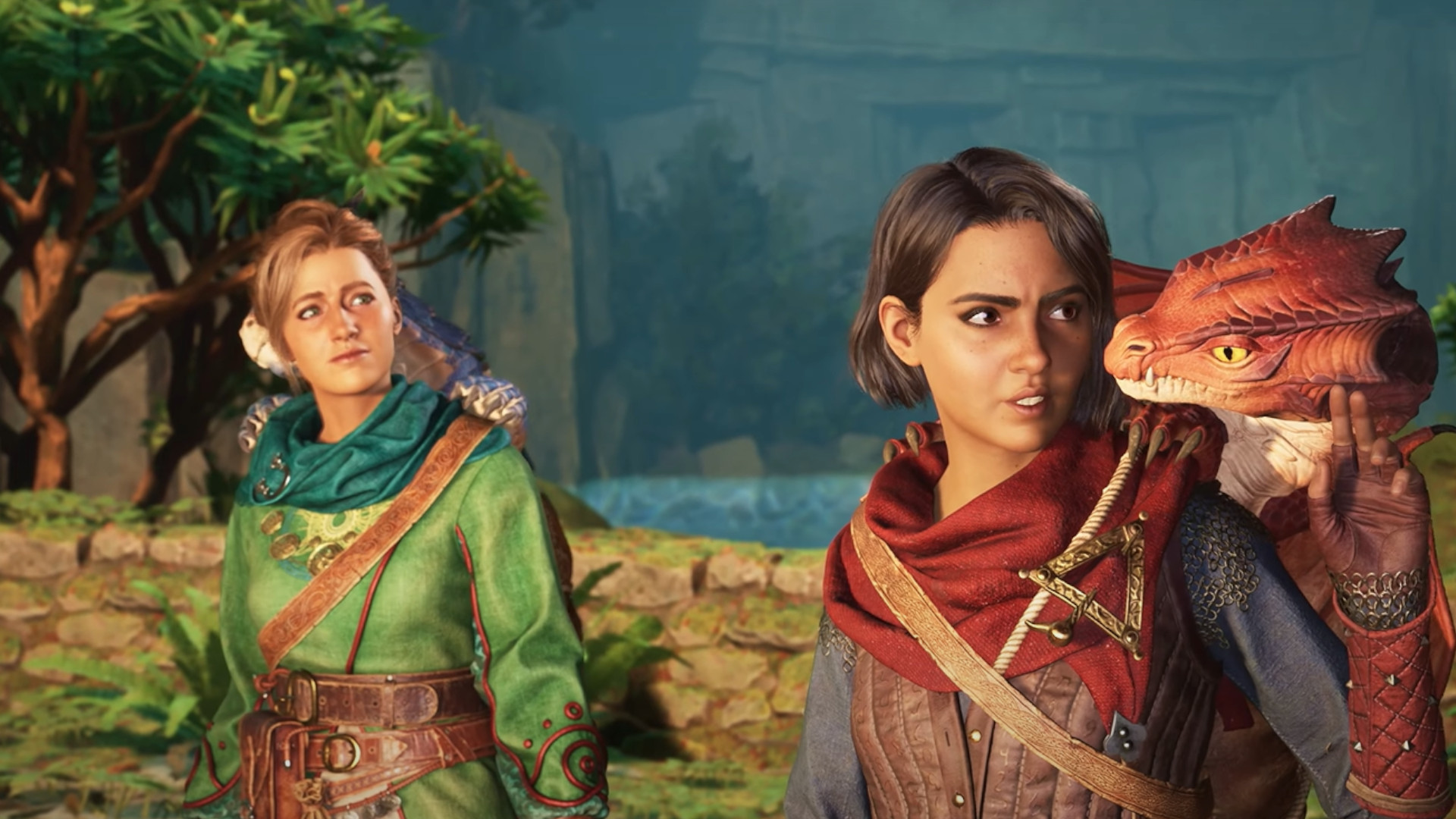
Key info
Developer: Hazelight Studios
Publisher: Electronic Arts
Platform(s): PC, PS5, Xbox Series X
Release date: March 6, 2025
Split Fiction focuses on Mio and Zoe, two struggling authors trying to get their stories published. After accepting a deal from a massive tech company, the writers unexpectedly take part in a VR experiment that creates simulations based on a user’s memories and their subconscious. Not long after discovering that the company’s CEO plans to use the tech to extract ideas from the pair for their own gain, an accident combines Mio and Zoe’s simulations, creating a mash-up that hops from science-fiction and fantasy genres, and the weirdness in between. Mio and Zoe journey through different areas of the simulation to escape and dismantle the experiment – all while bonding over their passion for storytelling.
For anyone who’s been keeping up with the latest technology, the hook of the story hits eerily at the current state of big tech looking to use AI to circumvent human labor, and it’s an aspect that Fares is aware of. However, he states that the premise mostly serves as a vehicle for a buddy movie-style adventure about the creative experience.
“It would always be nice to dive into our own stories, maybe not in this way where [the company] steals your story, but it would be really cool to do it – and that was kind of like the concept in the beginning for us,” says Fares. “It started with being like, ‘Okay, we want to combine fantasy and sci-fi, and then build the story around it,’ how do we put it in a perspective where it feels cool and interesting? The whole concept of combining them was intriguing. The story came together for us after, and then we just started adding to it, and it just felt like the right thing to do. It came quite naturally to what we have; I’m really excited.”
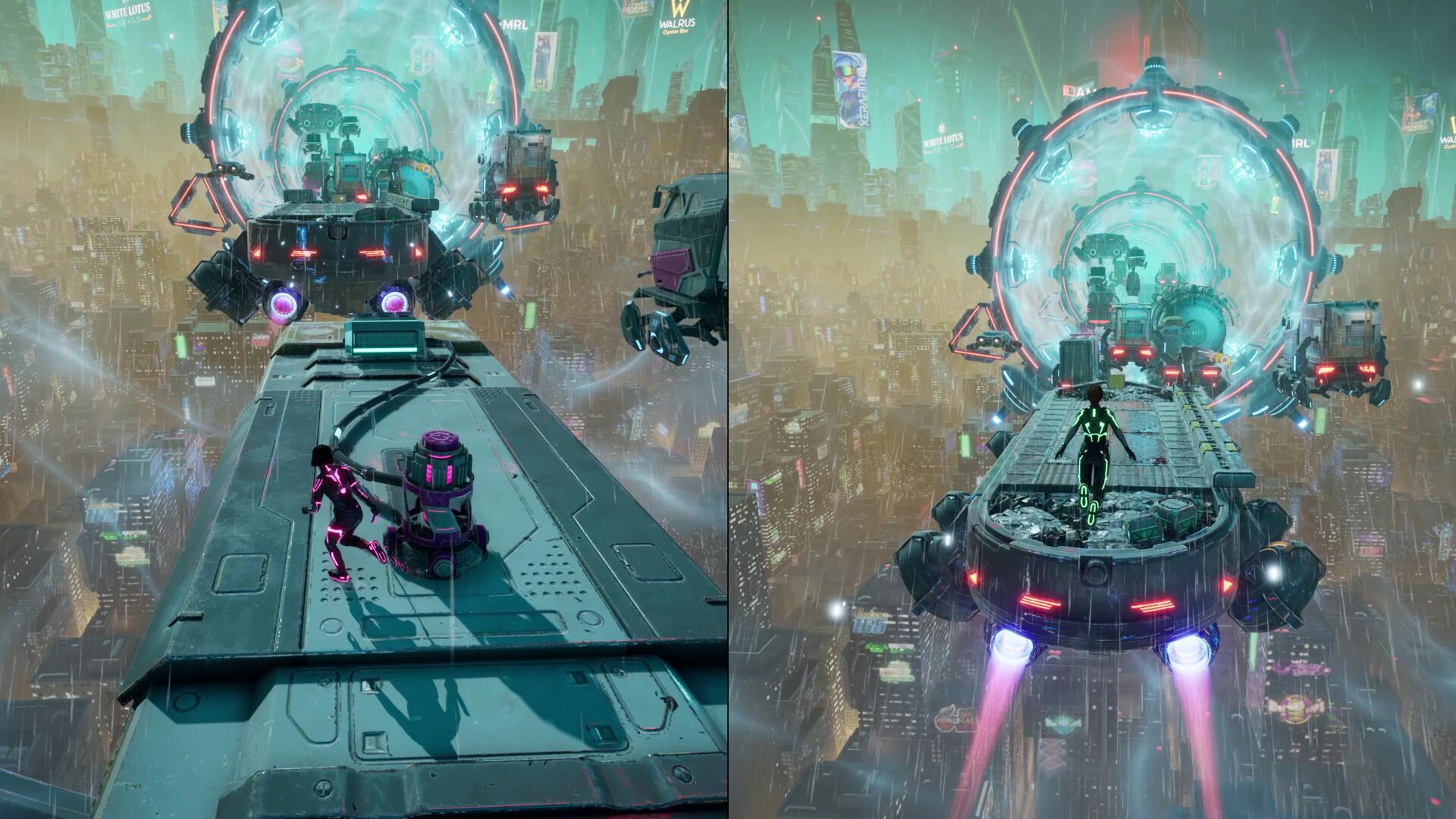
As with It Takes Two and A Way Out, Split Fiction puts two players together in a winding adventure where they’ll run and leap through dangerous environments, fight enemies, and engage in some bizarre and rowdy set-piece encounters. Where its predecessors took one genre and ran with it, Split Fiction’s big difference is how it embraces the unique scenarios that come with both fantasy and sci-fi, specifically with how the tropes you would associate with either force the two to come together to overcome them. One level, a wartorn, futuristic planet, has Mio and Zoe evading enemy ships and helping each other worm their way through destruction. Another is set in a Tolkien-esque town invaded by trolls, and has the duo sneaking their way through it unseen.
Variety, here, is key. Throughout my time with Split Fiction, I’m thrown from one totally different situation to the next. Even so, each feels well-realized, landing well enough where the concept could likely carry a game in its own right. Yet, I find myself enjoying seeing just what the game would dish out next.
In one sequence, Mio and Zoe ride a motorcycle, trying to evade police in a cyberpunk-style city. While my co-op partner controls the bike, I fend off attacks with a laser whip. This tense sequence culminates in one of my favorite gags – I have to disarm a self-destruct device by running through the most annoying, internet-style security questions in the middle of the chase. It’s hilarious in action, and my co-op partner and I crack up as I try to skip through the terms of service page as quickly as possible.
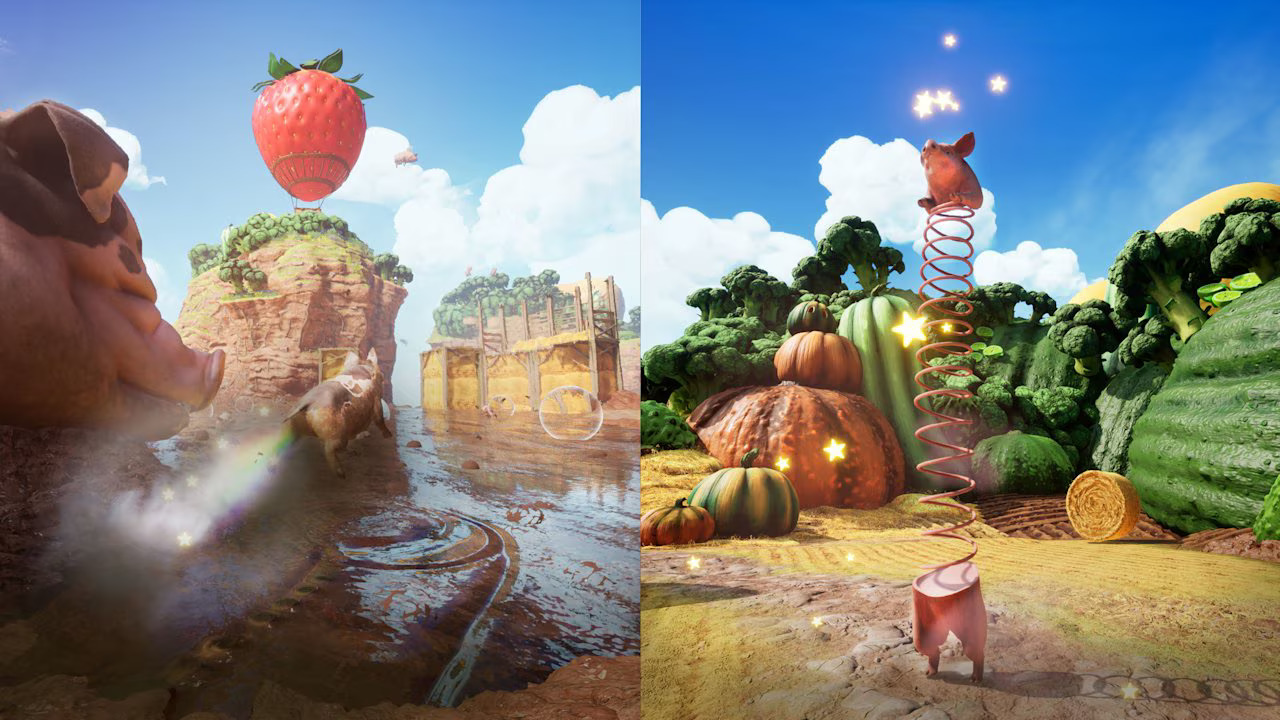
Another favorite moment from my hands-on is an optional side mission that sees me and my co-op buddy whisked away from the cyberpunk dystopia we explored to a level set in a Roald Dahl-style children’s story on a farm. Mio and Zoe take on the form of pigs who have to explore the farm and reach a safe haven, which eventually turns out to be a picnic table where my partner and I turned into hot dogs, forced to hop around as we prepare to be eaten.
It’s a delightfully wacky mission, even with the somewhat grim ending. It totally captures the strangeness of Split Fiction’s balancing of tone and comedy and how experiencing this with another player just makes it all the enjoyable. However, I find the mounting difficulty of each stage somewhat troubling. This might be a product of the curated preview experience, but my co-op partner hit some walls during our playthrough. One section set in the sci-fi world has us control two robotic orbs that eventually end up in a nightmarish version of a pinball machine, becoming one of the hardest sections of the game that requires some serious coordination.
We were able to rally and clear through, but after some periods of trial and error for the game director, the most challenging aspect of making the game was just figuring out how to ensure that each sequence and world visited was polished and kept the pace up.
Something different
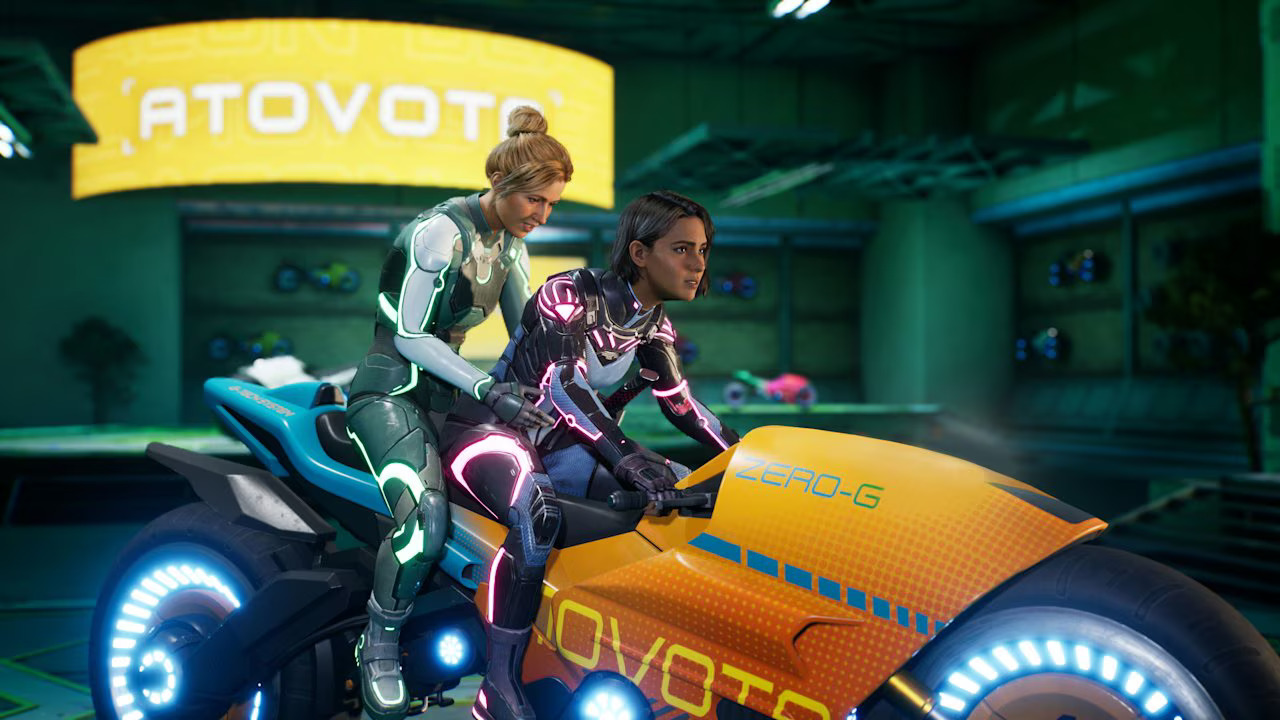
Took two
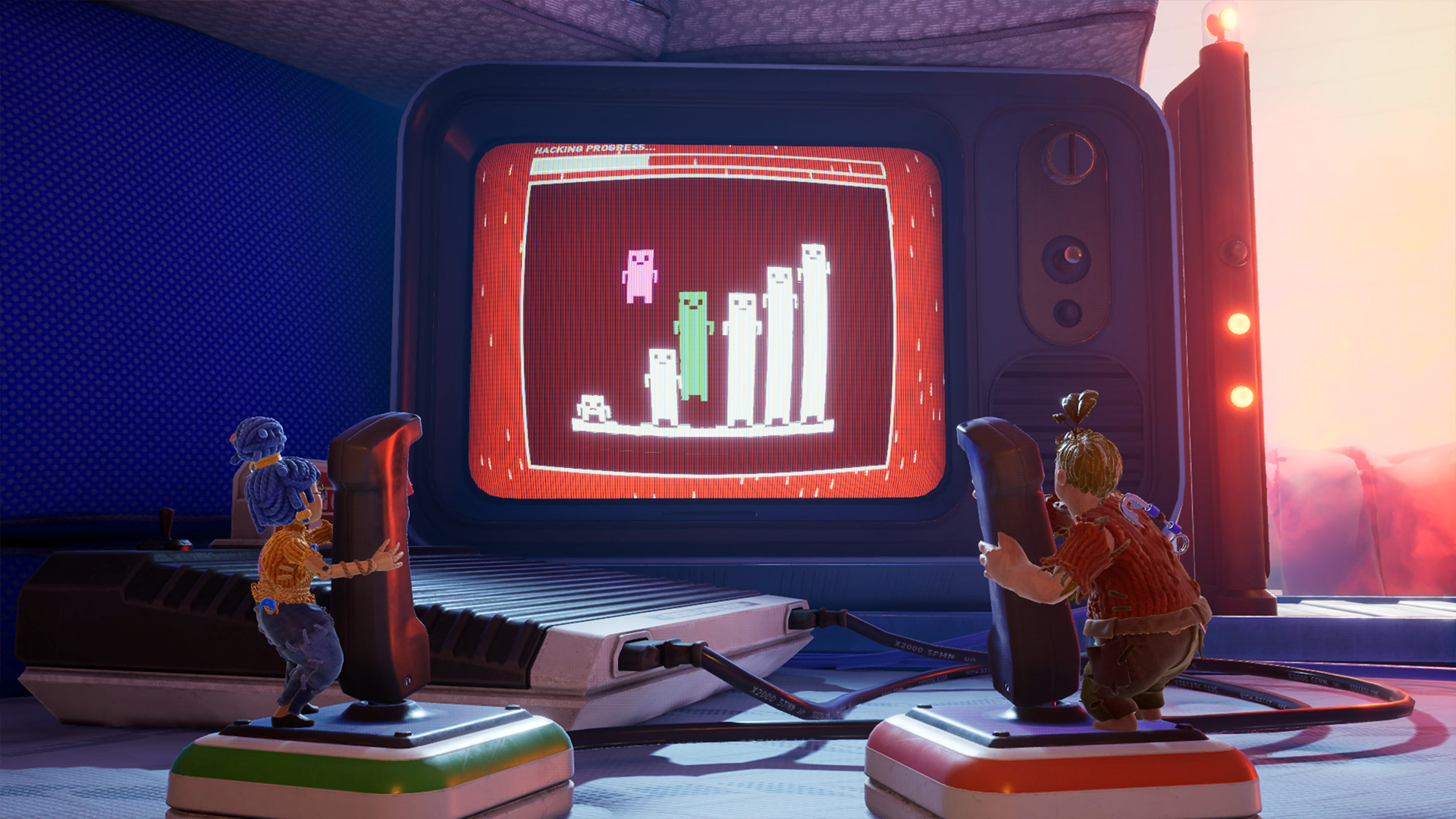
We loved Hazelight Studio’s last game! In our It Takes Two review we gave it five stars, calling it “a co-op experience unlike any other”.
Fares tells me it took some trial and error to ensure that each sequence and world on Mio and Zoe’s quest isn’t just polished, but well-paced. “We have so much content in this game, and creating everything was the biggest challenge,” Fares says. “There’s a reason why most games have two or three gameplay mechanics, and that’s it. But when you play a Hazelight game, you expect it to feel like how a racing game or a combat game plays. People don’t understand that [developers] can’t work on stuff forever, but we have become good at knowing what to cut early if we can’t polish it. It’s quite easy to prototype a mechanic, but you need to take it to a level where it feels nice and crisp. […] The side stories are some of the most challenging to build, as some have bosses, and others have totally new mechanics, and they’re totally entangled within the flow of the game.”
The main conceit sticks with Hazelight’s tradition of co-op games with an odd pairing. For A Way Out, that was about cooperation through necessity, and It Takes Two was about cooperation through love, and for Split Fiction, it’s ultimately about cooperation through a budding friendship. The two leads, who have differing opinions on sci-fi and fantasy, eventually come around to appreciating what each genre offers while learning more about what drew each of them to their craft. It’s a story that feels worth telling, especially with how creatives are becoming increasingly undervalued in present times.
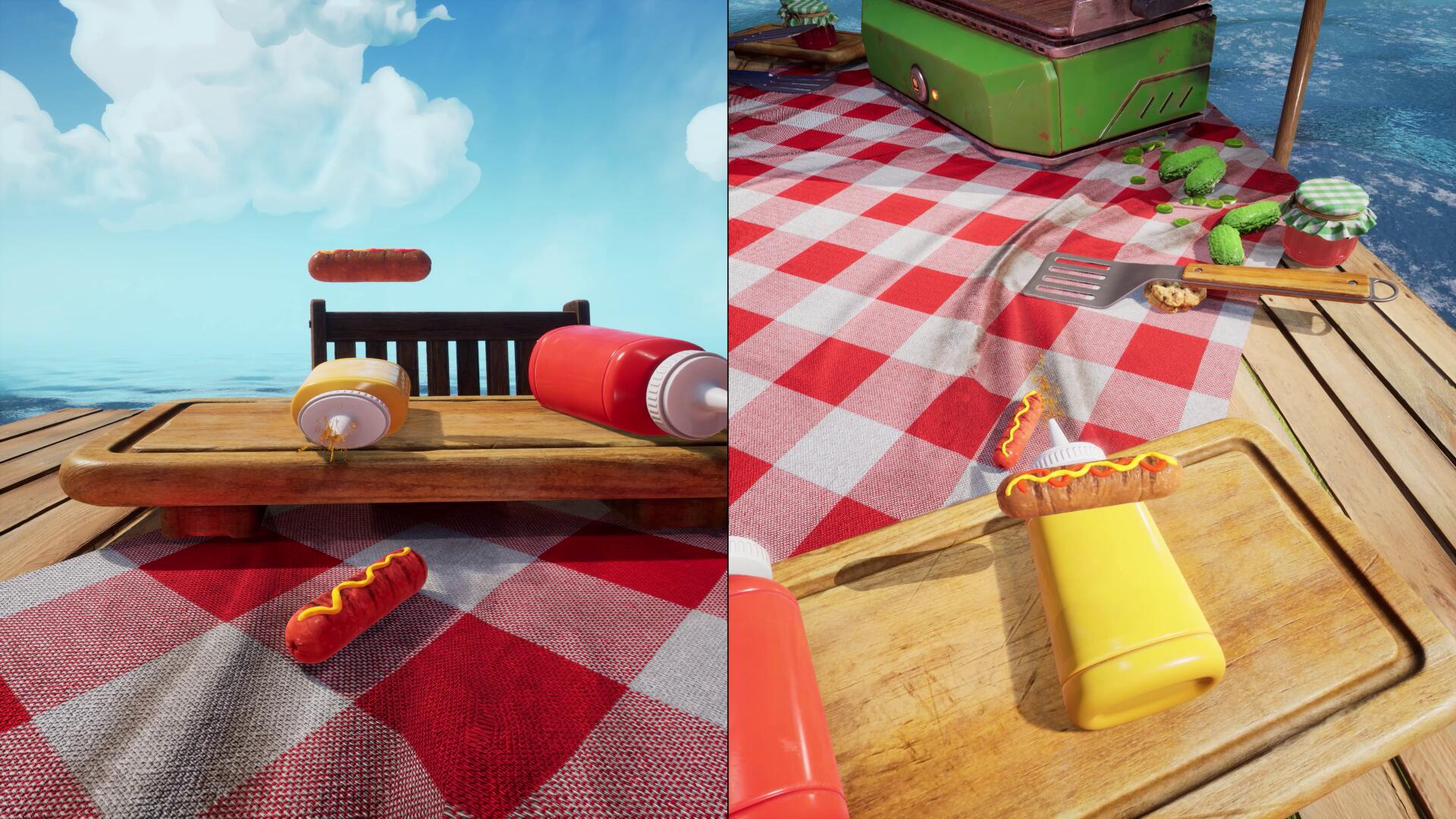
Split Fiction so far is looking to be a great follow-up to It Takes Two, one that really ups the scale and spectacle for co-op action, and I’m certainly down for that. During our interview, Fares speaks about the recent successes that he’s had with co-op games, but he still wishes that other developers would try their hand at making them, too.
“Other publishers aren’t doing this, and it’s crazy to me,” says Fares. “So many people are playing these games, and people love them. I mean, I’m looking at Ubisoft, and they’re struggling now, and I hope someone [from there] listens to this interview, but why aren’t they taking Sam Fisher and doing a split-screen-only game? Don’t chicken out to do single-player; just say this is split-screen only. Boom, that’s it. You have success, and I can guarantee you that they will sell a huge amount of copies of that. Yeah, they don’t even have to do it the Hazelight way; why don’t they listen to this [interview] and be like, ‘Oh, he’s right.’ That’s a guaranteed success for them; it’s for you, Ubisoft. You can get it for free from me.” Split Fiction releases March 6, 2025.
Already eager to grab a buddy and get playing? Check out our best co-op games!
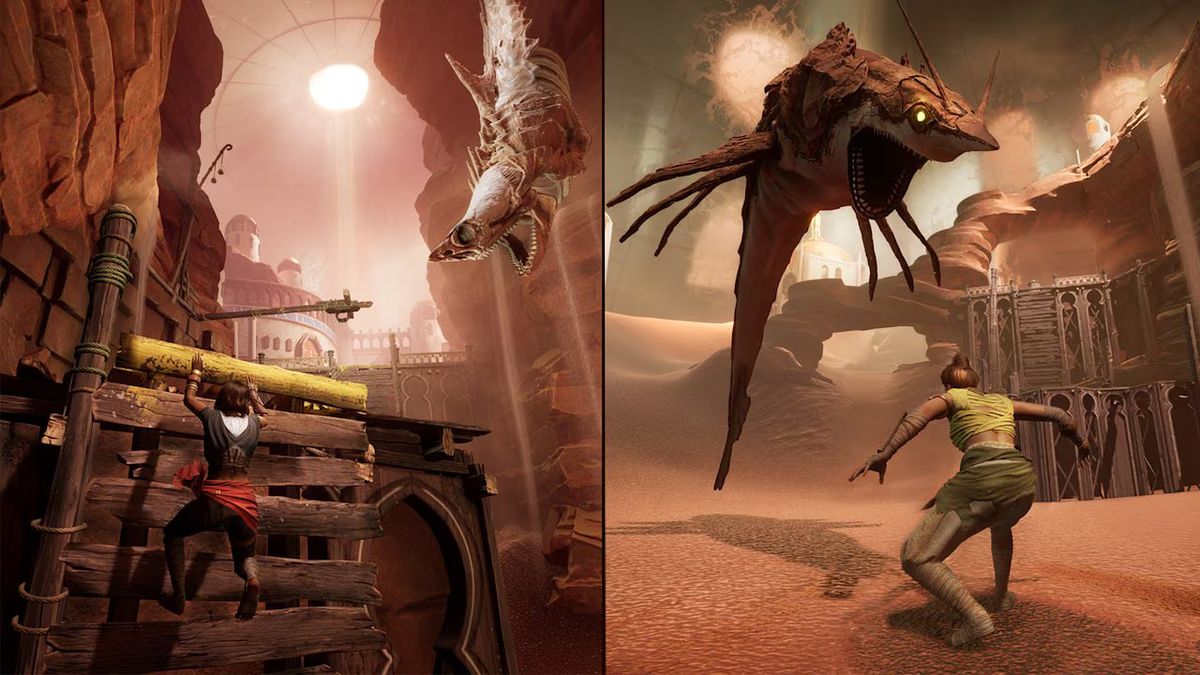
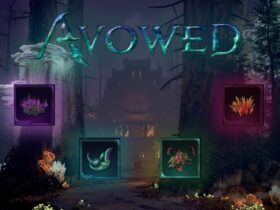


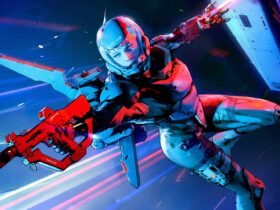


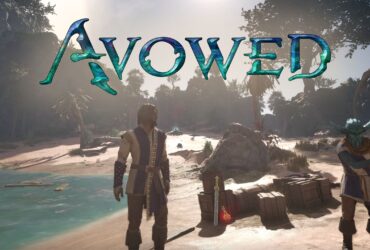
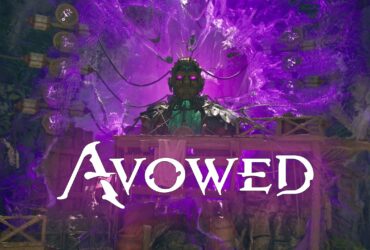
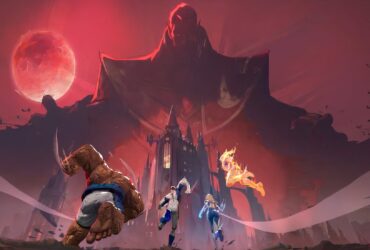
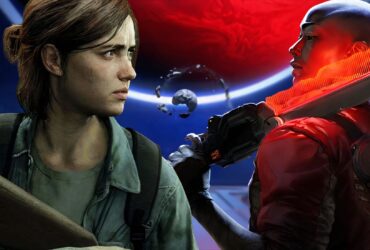

Leave a Reply